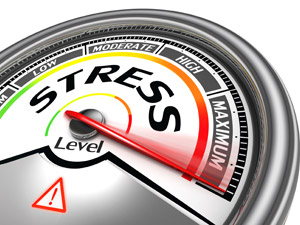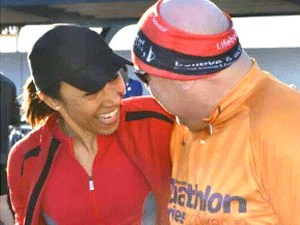ONE of the quickest ways to lose weight is to cut down on alcohol because booze is often little more than liquid sugar. You might be surprised to learn exactly how much of the sweet stuff is in your favourite tipple. That old saying “What’s your poison?” has never been more true, because over-consumption of sugar is one of the major health concerns of modern-day life.
One pint of stout has up to five teaspoons of sugar, more than half the recommended daily amount for an adult and more than you’ll consume in a half a Mars bar.
Scientists have recently recommended to the World Health Organisation that men shouldn’t consume more than eight teaspoons (32g) of sugar a day or women six teaspoons (24g) a day.
Be warned: A Bacardi Breezer contains 5.5 teaspoons of sugar, a Vodka and Coke has 6.5 and a Smirnoff Ice has 7.5.
I’m lucky that my favourite drinks are dry white wine or sparkly Prosecco, which have only a quarter of a teaspoon of sugar per glass. At least they’re not liquid sugar.
Men’s drinks are even worse for their waistlines and their health: Strong real ales can have up to nine teaspoons of sugar because sugar or honey is often added to the beverage to help produced the desired flavour.
So just one pint takes you over the recommended daily sugar intake. Years ago they use to advertise that “Guinness is good for you” but a pint contains five teaspoons of sugar (real liquid sugar!) Even lager has about three teaspoons.
Like a G&T in the evening? It’s lovely in summer with ice and lemon, isn’t it, but be careful – that tonic could have five teaspoons of sugar in it.
Compare that to a large glass of red wine, which only has a quarter of a teaspoon of sugar.
A bottle of Magners pear cider was found to have eight and a half teaspoons while a pint of Strongbow dry cider had three and a half teaspoons of sugar in it.
Vodka, gin and whisky have minimal traces of sugar in them unless you top the drink up with a fizzy mixer such as coke or lemonade.
Alcopops also had high sugar content with around five teaspoons per bottle. Liqueurs such as sambuca and Amaretto had around four teaspoons of sugar in a single shot.
Cardiologist Dr Aseem Malhotra says: ‘The level of sugar in some of these drinks is quite staggering. There’s nothing wrong with the occasional drink but unfortunately we are consuming much more than is good for us.
“Recent scientific evidence reveals that the most significant dietary villain is sugar. But it’s not just hidden sugar that the food industry has profited from by adding to foods we don’t even associate with being junk foods.
“It’s also the amount that we can be unwittingly consuming in the form of alcohol. Although moderate alcohol consumption may reduce the risk of developing heart disease and type 2 diabetes, there is no safe level for increasing the risk of cancer according to the World Cancer Research fund.”
Here’s a league table of liquid sugar content (figure shown is the number of teaspoons):
Pint of Guinness or stout: 5
Pint of premium lager 3.5
568ml bottle of Magners pear cider 8.5
Pint of Strongbow dry cider 3.5
175ml glass of mulled wine 11
175ml glass of medium sweet wine 2.5
Vodka and Red Bull 7
Gin and tonic 5.5
Vodka and Coca Cola 6.5
Sambucca shot 4
Amaretto shot 4
50ml glass of Baileys 2.5
50ml glass of Port 3
50ml glass of sweet sherry 2
Smirnoff Ice 7.5
Bacardi Breezer 5.25





7 thoughts on “The drink you love: it is just liquid sugar?”
As stout doesn’t contain added sugar, how did it get the five teaspoons of sugar? is it before the famentation or after. If it is so then using the same criteria, how much sugar does a pint of Coke contains? knowing that it contains added sugar.
Hello Joel, It’s true that stout contains up to 50 fewer calories than many other brews, a pint of Guinness for example has fewer calories than a Corona – 125 compared to 148. But there is sugar in stout. Not as much as in some lighter beers, but enough to make a difference.
Why do most other diabetic web sites say there is no sugar in alcoholic drinks. Gin, Vodka beer all no sugar. Yes high carbs are you mixing the two.
Hello Brian, Thanks for your question. As we state in the blog post, there is virtually no sugar in vodka and gin. However, beer does have a sugar content – in some cases, much higher than people would think. The sugar problem with gin and vodka lies in the mixers. They can be packed with sugar.
This is very helpful but what are the beers with the least sugar and would non alcoholic help !
Hello Barry, According to Diabetes UK, not only does alcohol contain lots of calories (these are basically ‘empty’ calories, with no nutritional value), but it also stops your body burning fat as all its attention is turned to burning off the alcohol.
Alcohol also reduces leptin production which may be the reason why drinking alcohol makes you feel hungrier, and more likely to tuck into a late night kebab.
It also reduces your willpower – you are less likely to go for the healthier option when out for a meal, cooking a meal, or raiding the fridge at home.
Diabetes UK gives these facts about sugar in beers:
Becks Blue 275ml bottle: 39 calories, 8.5g carbs, 0.6g sugars,
Heineken Alcohol Free Beer 330ml bottle: 69kcal calories, 16g carbs, 4.3g sugar
San Miguel 0.0% Alcohol 330ml bottle: 79 calories, 18.5g carbs, 5.6g sugar
Stella Artois Premium Alcohol Free Lager Beer 330ml bottle: 60 calories, 13.9g carb, 2.6g sugar
Brewdog Punk AF Alcohol Free IPA 330ml can: 50 calories, 10g carbs, 6 g sugar.
Wow I was led to believe Dry cider was better for me than dry white wine as a pre diabetic person🙈 I eat healthy so can only assume it’s my 2pints of cider and a stout once a week doing most of the damage, along with a three a day fruit diet 🙈